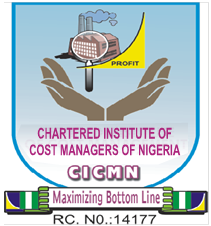In Nigeria, cost management has become increasingly crucial as the nation strives for economic growth and stability. Effective cost management involves the strategic planning, control, and optimization of expenses across sectors, ensuring that resources are allocated efficiently to maximize output and minimize waste. This practice is essential for businesses, government agencies, and NGOs alike, as it helps maintain financial health, increase competitiveness, and drive sustainable development.
The Chartered Institute of Cost Managers of Nigeria (CICMN) plays a pivotal role in advancing cost management practices across the country. By providing training, certification, and professional development, CICMN equips individuals and organizations with the tools they need to implement effective cost control measures. This, in turn, helps reduce the cost of doing business, enhances profitability, and contributes to broader economic development.
Furthermore, cost management helps address some of the systemic issues in Nigeria’s economy, such as corruption and inefficiency. By promoting transparency and accountability in financial transactions, cost management can help reduce fraud and mismanagement of funds, particularly in public sector projects. This is vital for building public trust and fostering an environment conducive to sustainable economic growth.
As Nigeria continues to face economic challenges, including inflation, fluctuating oil prices, and exchange rate instability, the importance of cost management cannot be overstated. Organizations that prioritize cost management are better positioned to weather economic downturns, innovate, and grow. Additionally, as the government seeks to diversify the economy away from oil dependency, cost management becomes a critical tool in ensuring that resources are used effectively in emerging sectors such as agriculture, manufacturing, and technology.
In conclusion, cost management is not just a financial strategy; it is a cornerstone of Nigeria’s economic development. The continued emphasis on and adoption of cost management practices will play a significant role in shaping the future of Nigeria’s economy, ensuring that it is both resilient and sustainable.

